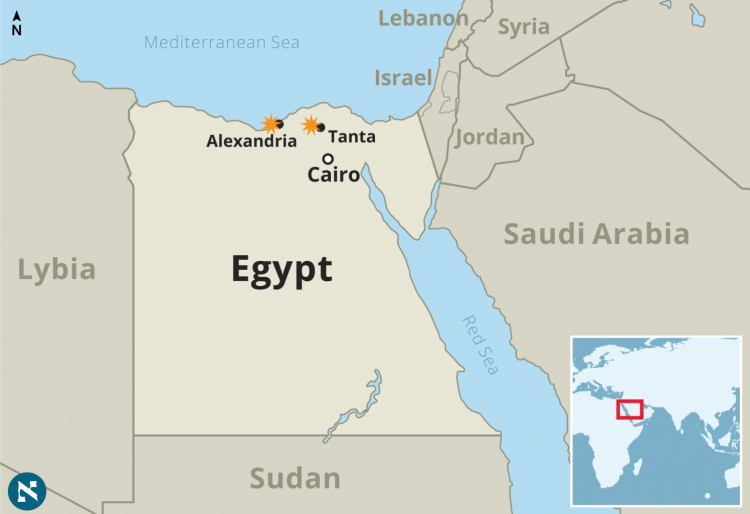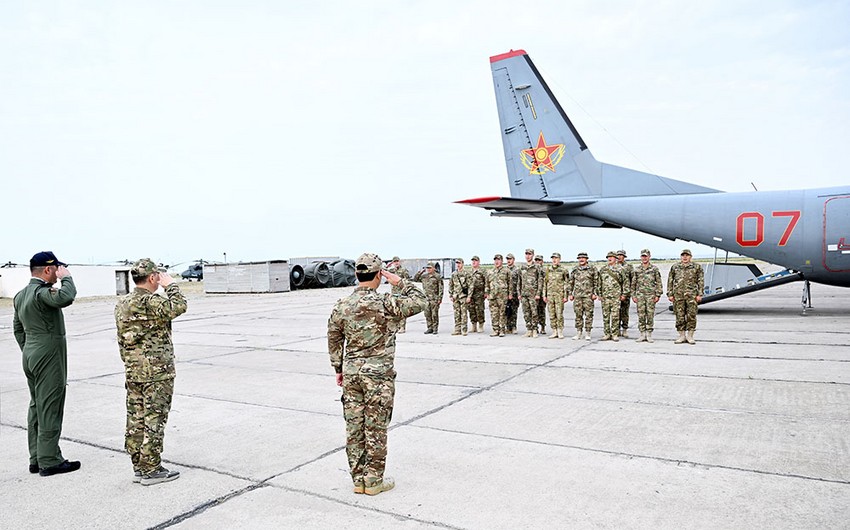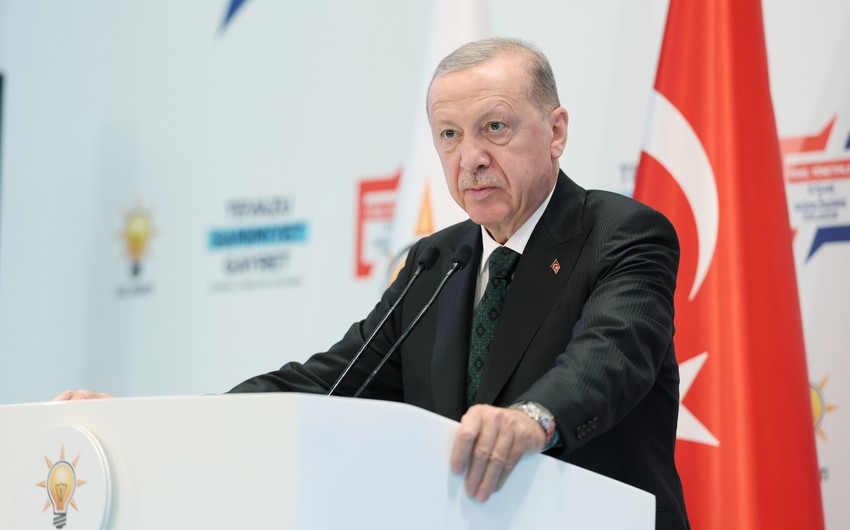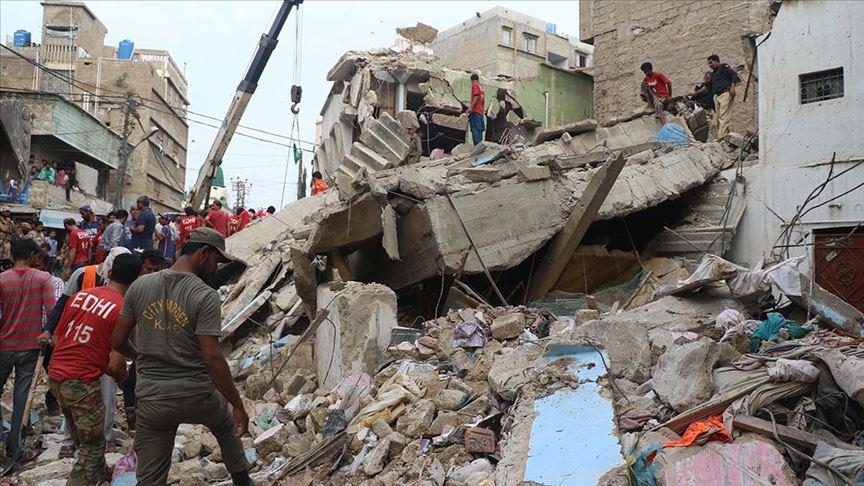Palm Sunday, normally a cheerful holiday for Egyptian Christians, the Copts, had turned into a tragedy this year, as a result of two terrorist attacks that killed 46 people in total. First strike was carried out by suicide bomber in front of the church in Alexandria (18 victims), second one happened hours later in Mar Girgis temple in Nile Delta city of Tanta, where another 28 people were killed.This is the second time in the last six months when Christian community have been attacked in this country. Cairo's Orthodox cathedral was assaulted in December of 2016, leaving 25 fatalities. ISIS claims to be involved in both of those incidents. Some people tried to connect those events with bombing that took place on 1 of April outside police training center, but Liwa al-Thawra, organization that claimed responsibility and is being known for aiming chiefly security forces, condemned these attacks.
Fortunately, Pope Twardos II, who was leading the holiday ceremony in Alexandria, had left the church before explosion. President Abdel Fatah al-Sisi has summoned National Defence Council for urgent meeting. He declared 3 days of national mourning and 3 months of emergency state countrywide. Appropriate defence forces were deployed in critical objects throughout the whole territory of state.
Catholic Pope Francis issued official condolences to Pope Twardos, as well as Sheikh Ahmed Muhammad el-Tayeb, head of Egypt's Al Aznar, the leading center of learning sunni Islam. Both spiritual leaders condemned terrorists.
Copts, the biggest Christian minority, constitute 10% of Egypt's 92 million population. According to declarations made by Amaq, the so called ISIS news agency, Christians in Egypt will face another attacks in the future: “Let the crusaders and apostates know that they will pay a huge bill with their son's blood”, we can read in their statement. Our expert, Ahmed Abd Rabou, noted that we should look into year 2013 to find the reasons of this hostility. The Copts have taken a clear anti-Morsi position, as well as they opted against Muslim Brotherhood.
Ahmed Abd Rabou is a Visiting Scholar at the Center for Middle East Studies at the University of Denver. Originally from Cairo, Abd Rabou is an Assistant Professor of Comparative Politics at Cairo University.
Abd Rabou is also known among Egyptian scholars for his specialization in civil‐military studies and political Islam movements in Egypt where he currently focuses his research. His most recent publications are, “Civil-Military Relations in The Middle East: A Comparative Study of the Political Role of the Military in Egypt and Turkey” in 2016, and he is the editor and contributor to “ Reading Contemporary Jihadism” which was published in Arabic in 2017.
.jpg)
According to our expert, one should look at these attacks from three different perspectives: security, religious and political.
From a security angle, this attack is an escalation of ISIS-Sinia attacks. They executed two big bombings simultaneously against two churches including this one, where pope Tawadros II was still inside. It happened only few months after the assault on the main Christian cathedral of Cairo. That puts forward some questions on the efficiency of security services in Egypt. The war on Terrorism that was launched by the Egyptian regime 4 years ago after the deposition of former president Morsi from Muslim Brotherhood seems to be robust but still unproductive in many ways and it demonstrates the need of a reform plan on the tactical and logistical levels.
From a religious perspective, this is a series of attacks targeting Egyptian Christians (Copts). although very few Egyptians would blast themselves to punish Christians, but many Islamists still share a very negative view of Christians as a minority which, in their opinion, should be subordinated by Islamic Shari'a Law. That means that while many Islamists wouldn't kill Copts themselves but still there a hatred sentiments towards Copts and there a shared attitude that they "deserve what they got". It's worthy here to say for the first time the anger and frustration of Egyptian Copts against Islamic traditions, Imams, scholars, and of course against Islamist were much more vocal this time if compared to their reactions towards similar attacks in the past.
Politically speaking, these attacks have worsened already existing polarization in the Egyptian society between seculars/liberals on one side and Islamists on the other side. Given the current political and security restrictions to political activism, one can say that without a new political formula in Egypt, security threats and social rifts will continue to mushroom.
By Witold Olejnik










